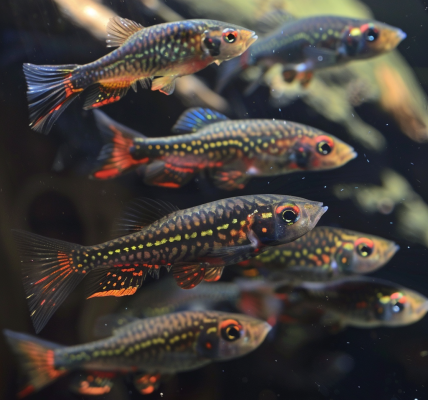MILAN, December 3, 2024 – AAVantgarde Bio, a pioneering biotechnology company based in Italy, has announced an important development in the field of ophthalmology. The company is set to present findings from its LUCE-1 clinical study at the upcoming FLORetina Annual Meeting, scheduled for December 5-8 in Florence, Italy. This presentation will showcase the safety results observed in the first two subjects diagnosed with advanced retinitis pigmentosa due to Usher syndrome 1B, following their participation in the LUCE-1 study.
The oral presentation will be delivered by Prof. Francesca Simonelli, who serves as the Principal Investigator for the LUCE-1 study. This event marks a significant milestone as it involves the first administration of a dual Adeno-Associated Viral (AAV) gene therapy aimed at treating ocular conditions.
Details of the Oral Presentation:
- Date/Time: December 7, 2024, from 10:50 to 10:54 h CET
- Presenter: Prof. Francesca Simonelli
- Session Title: Multicentric longitudinal study in Usher Syndrome IB: disease course and implication for gene therapy
- Session Focus: Inherited retinal diseases treatments
The LUCE-1 trial is a Phase 1/2 multicenter, open-label, dose escalation study that aims to investigate the safety, tolerability, and preliminary efficacy of three different dose levels of the dual AAV8.MYO7A (AAVB-081) gene therapy. This therapy is administered subretinally to subjects suffering from retinitis pigmentosa linked to Usher Syndrome Type 1B.
Understanding the AAVB-081 Program:
AAVB-081 is an innovative intra-retinal therapy that utilizes a dual hybrid approach based on AAV8 vectors. This program specifically targets MYO7A-associated Usher syndrome. The unique dual hybrid platform employed by AAVantgarde incorporates two AAV8 vectors, each containing a fragment of the expression cassette that encodes the Myo7A gene. This method operates at the cellular nucleus level, enabling the recombination of the two halves of the transgene into a complete functional gene within the cell.
This pioneering technology has demonstrated its capability to facilitate efficient recombination, resulting in the generation of therapeutically significant protein levels in various animal models. The implications of this research could pave the way for advanced treatments for individuals affected by inherited retinal diseases.
As the medical community eagerly anticipates the results from the LUCE-1 study, AAVantgarde Bio continues to position itself at the forefront of gene therapy innovation. The findings presented at the FLORetina Annual Meeting will not only contribute to the understanding of Usher syndrome but also highlight the potential of AAV-based therapies in the treatment of complex ocular conditions.
The company’s commitment to advancing gene therapy solutions is evident in its ongoing research and development efforts. With the LUCE-1 trial, AAVantgarde aims to provide hope for patients suffering from retinitis pigmentosa and other inherited retinal diseases, ultimately striving to improve their quality of life through innovative therapeutic options.
For those interested in the latest advancements in gene therapy and retinal disease treatment, the upcoming presentation at the FLORetina Annual Meeting promises to be a pivotal moment in the field, showcasing the potential of dual AAV gene therapies in addressing significant medical challenges.





